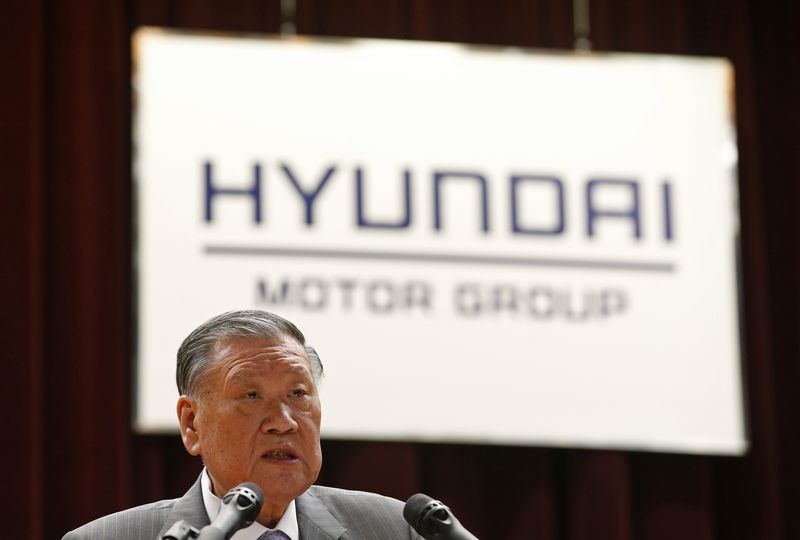By Joyce Lee and Hyunjoo Jin
SEOUL (Reuters) - When Citigroup (N:C) asked Hyundai Motor Group for information about how the proceeds from a proposed $1.25 billion (0.82 billion pounds) affiliate share sale would be used, the deal manager did not get a clear picture, a person privy to the talks said.
To Hyundai's surprise, the lack of detail scared away investors, revealing how South Korea's powerful family-owned business empires, known as "chaebols", can no longer count on an acquiescent market to back murky decisions seen as putting kin ahead of shareholders.
Investors had been hoping that by buying shares in logistics firm Hyundai Glovis (KS:086280), they would have a front-row seat in the huge family-owned conglomerate's restructuring ahead of an expected generational leadership change.
But Hyundai told its advisers at Citi that no clear plans had been made regarding restructuring, the source said on condition of anonymity because the talks were confidential.
Without guidance on whether Hyundai Glovis would remain central to the owning Chung family's succession plans, investors walked away from the deal on Tuesday.
"Hyundai has not provided a big picture for how it is going to restructure the group as succession looms. I understand that they can't share details, but they should provide several principles," said Park Yoo-kyung, a Hong Kong-based director specialising in corporate governance at APG Asset Management.
"Without them there would be rampant speculation in the market."
A Hyundai Motor spokesman and a Citi spokeswoman declined to comment.
As Samsung, Hyundai and other chaebols restructure their sprawling affiliates to hand over power to a third generation, convincing increasingly defiant investors to play along is becoming more difficult.
This week's failed deal would have seen Hyundai Motor (KS:005380) Chairman Chung Mong-koo, 76, and his only son, Vice Chairman Chung Eui-sun, 44, sell down their stake in Hyundai Glovis by 13 percent to 29.99 percent.
The trade could have helped Eui-sun buy stakes in key units such as Hyundai Mobis (KS:012330) as part of succession planning, while shielding Hyundai Glovis from antitrust rules designed to rein in the chaebols' power, analysts said.
IN THE DARK
According to the person who was privy to discussions about the share sale, adviser Citi pressed Hyundai about its restructuring plans in the knowledge that this is what investors wanted to hear.
"Hyundai doesn't have a concrete plan yet about how to use the proceeds, if the shares had been sold," the source said.
"Investors seem to have panicked about the unexpected, large-size deal. They thought: 'What is the real intention?'"
Hyundai told investors that the block sale was aimed at complying with the new antitrust rules, the person and another source familiar with Hyundai Motor's thinking on the matter said.
"Hyundai fully explained why it is selling the shares. It is up to investors to link that to succession. But succession is not an imminent matter at Hyundai, unlike at Samsung," one of the people said.
Differences over prices and conditions led to the trade's collapse, the person said.
Investors wiped 23 percent or about $2.37 billion off Hyundai Glovis's market value after the Chungs' stake sale failed. The shares were up 3 percent on Thursday.
"It seems to me that top shareholders are deserting Hyundai Glovis," said Huh Nam-kwon, chief investment officer at Shinyoung Asset Management, who holds Hyundai Glovis shares.
In other signs of South Korean shareholders' new assertiveness, investor anger at a $10 billion property purchase by a consortium led by Hyundai Motor triggered a rare share buyback by the automaker and its affiliate Kia Motors (KS:000270) in November.

($1 = 1,084.3000 won)